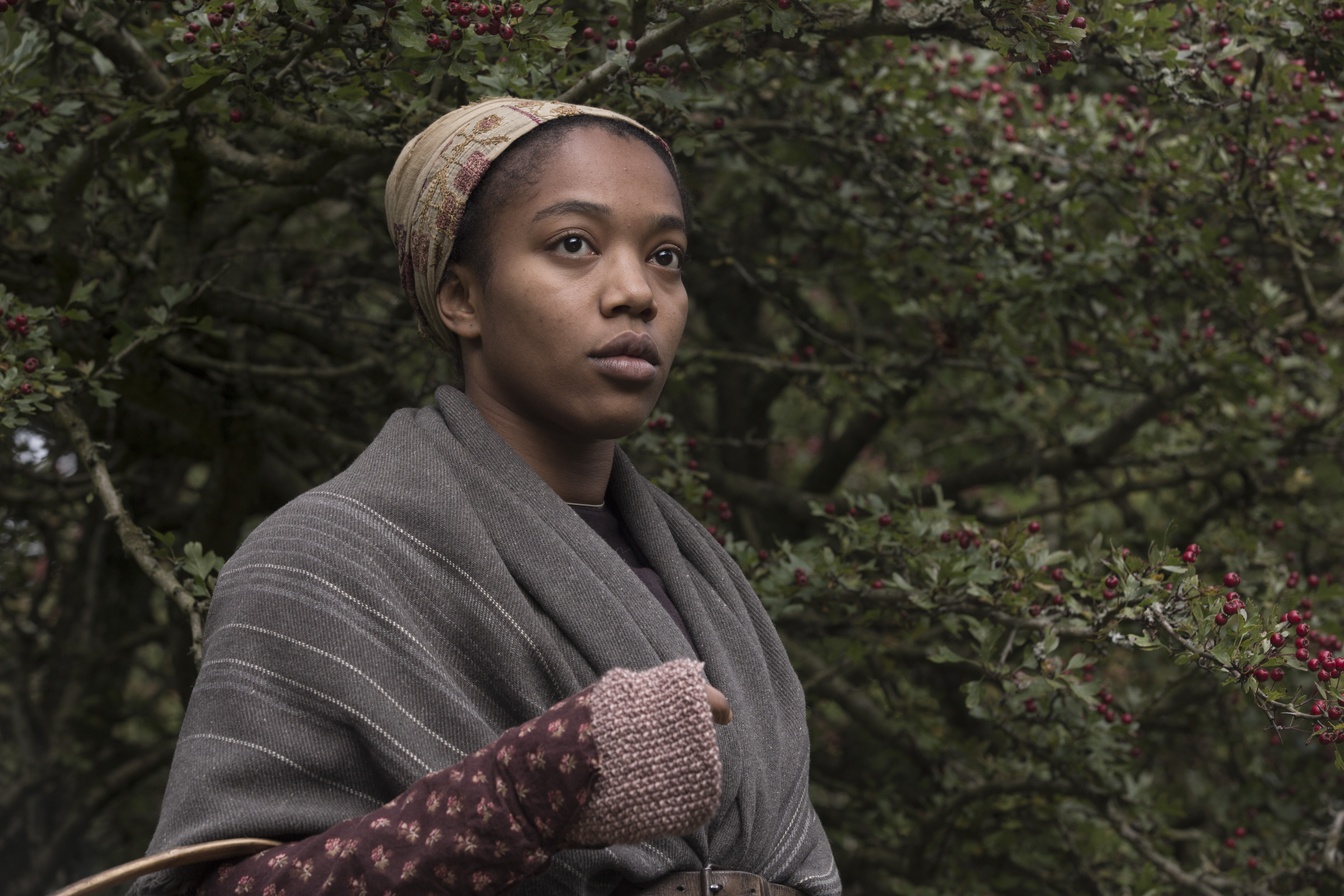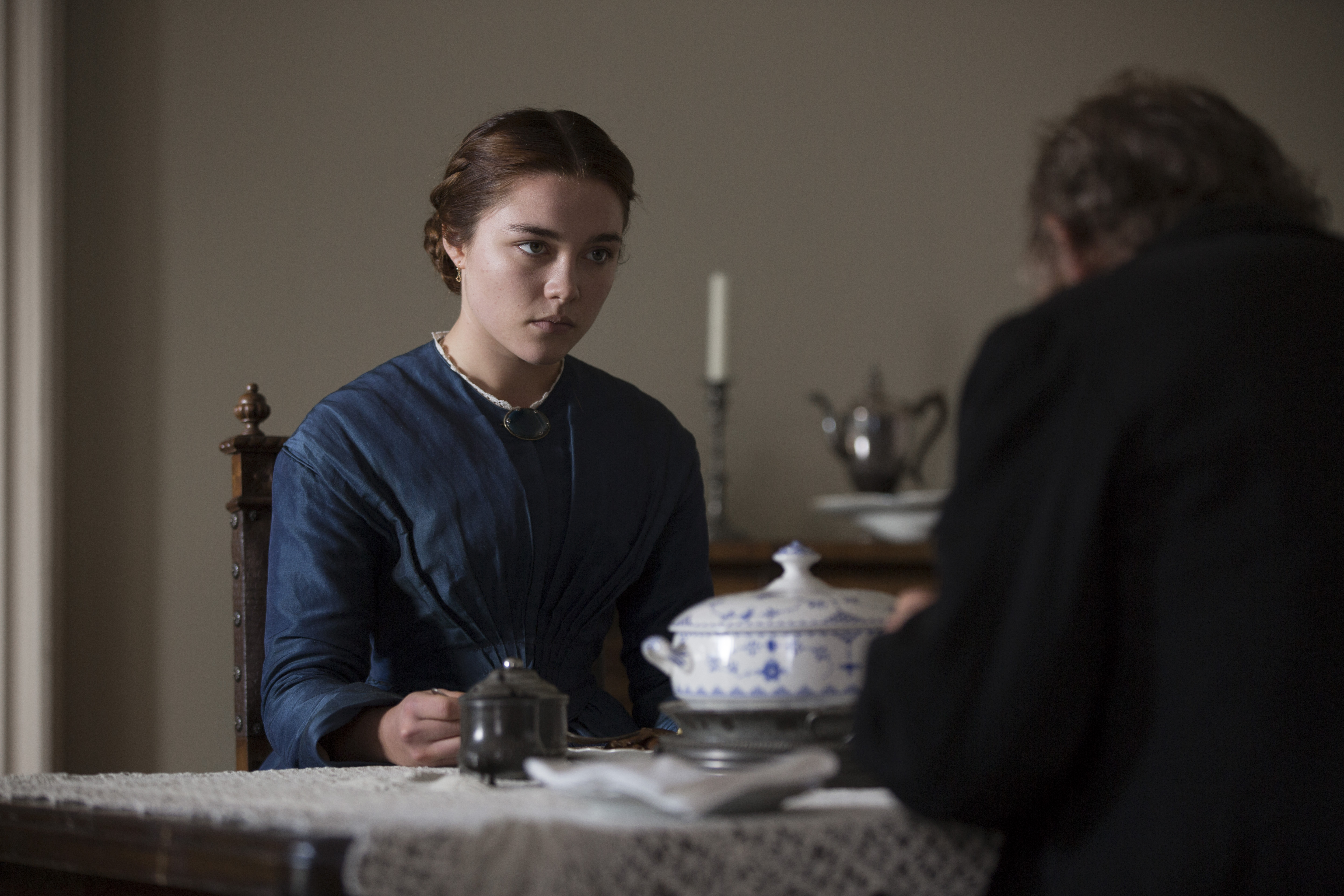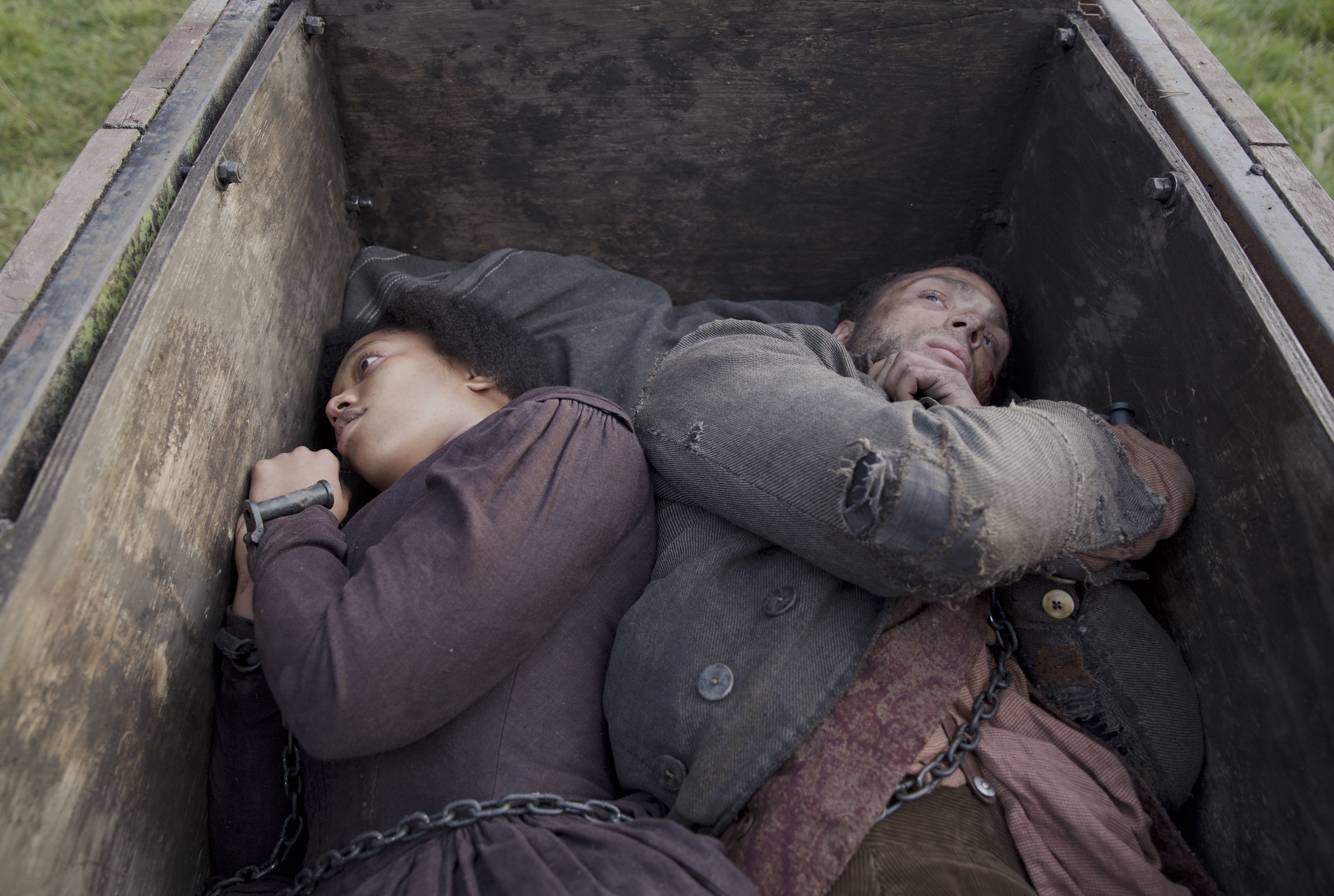
Lady Macbeth: finally, a feminist, racially diverse period drama film?
Natalie Morris and Charlie Brinkhurst Cuff
20 May 2017
Lady Macbeth is a bold and deadly period drama like no other. Bloody and unforgiving from the outset, this fierce feature film debut from London director William Oldroyd toys with convention and pushes your preconceptions of 19th century England.
Despite having many of the trappings of conventional Victorian period dramas – the costumes, the manor house, the servants – Jane Austen this is not. Opening up complexities of race, feminism and sexuality, Oldroyd’s film feels acutely current and relevant to a modern audience: no small feat for a film based on a Russian novella and set in 1865.
At the heart of this amoral love story is Katherine, played by Florence Pugh – who is mesmerising in her portrayal of a young woman’s emancipation. Having been married off to an impotent older man, often away travelling, she takes over her manor house and tries to build a home with her young lover, killing anyone who gets in her way. “It’s not often you get to see women on screen kickback in this way – particularly in this era,” says Pugh.
“I love Katherine, and she is an incredibly complex character, and part of that challenge is walking that line between hero and villain. She’s definitely about emancipation and female strength. It’s refreshing to see a woman take control of her destiny in this way. Female characters are rarely given this freedom.”
“You have to question whether Katherine’s anarchic behavior isn’t borne of something less righteous than female empowerment”
Katherine is tricky. On the one hand you are applauding her rebellion and her refusal to be cowed by the men in her life, but as her actions spiral into increasingly remorseless violence, you have to question whether her anarchic behavior isn’t borne of something less righteous than female empowerment. Can she truly be seen as a feminist character when she’s so clearly out for herself?
“I don’t know whether Katherine would herself be described as a feminist,” considers Pugh, “I’ve been involved in discussions about her character, about the way she treats the female characters in the film, and I don’t know if she really can be seen as ‘pro-women’.”
I agree with Pugh on this. Katherine’s treatment of the women in her life is the same as her treatment of the men. She will destroy anything that stands in the way of what she wants. It’s this universal malevolence coupled with her childlike vulnerability that makes her so intensely watchable. Feminist or not, Katherine’s character evokes a sense of power and independence that’s very rarely afforded to women on screen – and makes me root for her even in her darkest moments.
British period dramas have the chronic tendency to whitewash history. Downton et al. have created the impression that 19th century England was entirely devoid of people of colour. The creators of Lady Macbeth called bullshit on this rather spectacularly, with more than half of the central characters being black or mixed race. Director William Oldroyd says this wasn’t a conscious choice, but rather a response to the reality of England at that time: “Really it was all down to the research,” says Oldroyd.
“We did a lot of research about the period and looked at a lot of photos and from what we found – this kind of diversity was the norm. I think a lot of people assume that there weren’t black people in England in the 19th Century, which is why so many of the period films you see are so predominantly white – but that’s just not the case.
“Particularly in the North East of England at the time, there would have been black families, so the way we cast the film is just reflecting the detailed research that we did and is just being true to the era.”
The scriptwriter, Alice Birch, made the decision to not describe any of the characters in the text – opening the door for greater diversity in casting. For Naomie Ackie, who plays Katherine’s handmaid Anna, it is decisions like this that are helping her build her career: “All this time I’ve been writing off period dramas and stuff like that – like we didn’t exist again,” says Ackie.
“One of the biggest reasons why I was like ‘holy crap I need to do this film’ was because it’s so rare that as a black woman and a black actress that you even get a look in for these. To play a character who not only appears in it but also has a really good character arc – the full story with a full character – was a chance I really didn’t want to let up.”
But is colour-blind casting really the best way to push diversity in films – and did this film get it right? “Colour-blind casting forces you to kind of revaluate any preconceptions,” says director William Oldroyd. “When you see someone playing a certain part, you maybe notice their appearance or their race for about five minutes, and then you don’t think about it again.”
“Katherine’s mixed-race lover is a hypersexual black man driven by carnal needs and feral desire”
I agree with him in principle, but this isn’t quite how it felt watching Lady Macbeth. Rather than challenging preconceptions, the characterisation of the non-white characters felt disappointingly familiar. Katherine’s mixed-race lover is a hypersexual black man driven by carnal needs and feral desire. Naomie Ackie’s Anna is trodden-down and timid, eventually going mute in a perfect metaphor for silent powerlessness. The very presence of black people in 19th century England is in itself subversive on screen, but ultimately the casting decisions revert to type and the black characters are pushed to the bottom of the pile.
Ackie admits she struggled with her character’s silence: “I’m pretty outspoken. The older I get, the more of a voice I have. To have to go in the opposite direction, where my voice is taken away – that was tough, and really put me in that position.”
But is the film unfair to the black characters? Ackie doesn’t think it’s as simple as that: “I think the real thing about race that comes out of it isn’t so much the racism – ‘you’re black, so I’m going to mistreat you’, but in terms of the feminist movement,” she says.
“If we look at intersectionality, the difference is the options you have as a woman are dependent on who you are and where you come from, what colour skin you have and what class you are.
“You look at Katherine, she marries into a wealthy-ish family, runs rampant and goes absolutely crazy and gets away with it. Anna, who’s the black maid, can only really go silent. She doesn’t have many options. The question of race really came through with the idea of feminism.”
It may not have hit every note perfectly, but this film speaks to me. If nothing else it has opened the conversation about race and diversity in period dramas – and hopefully taken a step towards normalising black faces in Victorian costumes.
What has truly stayed with me since watching Lady Macbeth is the sense of female power and redemption. Female characters are typically driven by likeability – they have to be liked in a way that male characters don’t seem to. What I admired most about Pugh’s leading character was how she was freed from this. She doesn’t give a shit if you like her or not. Which obviously made me adore her.
Lady Macbeth is out in cinemas now. Watch the trailer below










